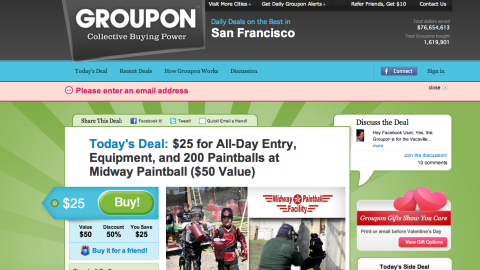Why would Groupon IPO?

A lot of people are trying to figure out why Groupon would go public now, before their revenues/profits are a bit more derisked.
Going public now allows Groupon to establish dominance against their competitors. They can show that they are the most mature and encourage a perception from the public markets that LivingSocial et. al. are “Groupon Clones.” This is probably very worthwhile, I would generally encourage them to do that as much as possible were I a stockholder.
Note Andrew Mason’s letter to potential stockholders, it is written to convince you that they are the market leader and that they aren’t going to lose. This letter accomplishes some immediate goals, it tries to convince us all that:
(1) Groupon is the market leader, it’s their game to lose.(2) Groupon will value growth over profit because growth means future profit.
The letter will also likely serve as a frequent article of evidence in the first few years of a public GRPN. When people say they aren’t making enough money or they take a hit for a bad quarter, Mason will point to this letter and say “we’re different, we’re not playing the game, we’re investing in growth.”
The tone of the letter seems written to scare off skittish investors, and that’s because the company is still a risky bet, riskier than I think public markets will like. But so did Skype after they spun out of eBay.
Frankly, Groupon is in a great position — marketplaces inherently benefit from network effects and Groupon has more share than any other Deals marketplace. Because Groupon has the larger number of subscriber and supplier relationships, the market is theirs to lose.
Investing in an early player like this without enough information about their management team’s decisions is very hard. Trusting someone at this stage boils down to knowing and trusting in them. I’d feel much better as a VC/PE investor who could meet Andrew and ask about the potentially problematic issues: their hiring rate seems potentially unhealthy and the use of adjusted CSOI as the main financial metric is interesting (this point deserves it’s own blog post Adjusted CSOI may actually be a reasonable metric in this world). But, that said, I think it’s Groupon’s game to lose.





